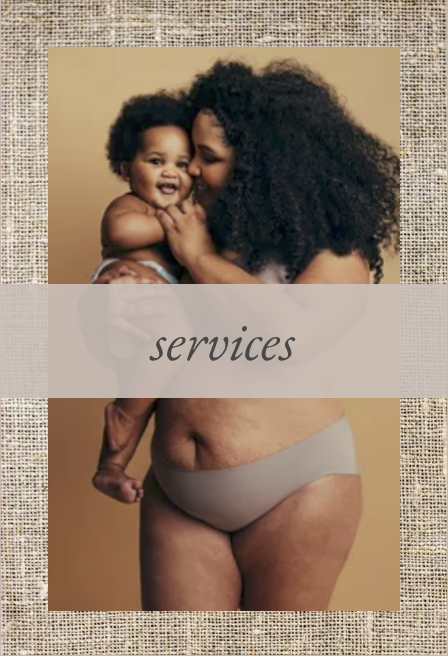Kim@BirthingDays.com | 541-733-4002
Infant tongue tie can cause a host of issues for both mama and baby, and all too often results in an unwanted end to breastfeeding.
What is Tongue Tie?
A tongue tie is when the band connecting the tongue to the bottom of the mouth, is too tight, too thick, or both. (The medical term for tongue tie is ankyloglossia.) It restricts the tongue’s range of motion and can cause difficulty for babies when they feed.
What Causes Tongue Tie?
Studies suggest baby tongue tie is an inherited condition, but there isn’t enough data to explain exactly why the tongue sometimes forms this way.
There is some evidence that the MTHFR gene plays a role in the formation of the mouth, including infant tongue tie.
Is Tongue Tie Common?
Only about 4-11% of infants have a tongue tie, however, this is a very commonly misdiagnosed condition and most likely underdiagnosed. Tongue tie is more common in boys.
A tongue tie is often, but not always, accompanied by a lip tie. This is a condition where the piece of muscleless tissue connecting the upper lip to the upper gum restricts the mouth’s mobility because it’s too thick, too tight, or both.
Tongue & Lip Tie
Experts say the tongue and the lip develop at different times and by different processes in utero.
It’s always a good idea to get your baby checked for both since these conditions do accompany each other. Tongue ties affect breastfeeding more, while lip ties can increase susceptibility to tooth decay.
Diagnosing Tongue Tie
Unless a tongue tie is severe, it often goes unnoticed and undiagnosed by many healthcare practitioners—even your pediatrician. Talk to a lactation consultant or a holistic dentist if you notice the following signs:
If Baby is Tongue Tied, Mom May
- Have sore, cracked, or bleeding nipples
- Have nipples that appear squashed, lipstick shaped, and/or blanched (white)
- Experience pain while breastfeeding
- Get frequent infections or mastitis
- Milk supply issues due to ineffective removal
Baby May Have Tongue Tie If…
- Have trouble lifting the tongue up or from side to side
- Have a tongue that appears heart-shaped or notched in the middle
- Dribble milk down the side of their mouth when feeding
- Display excessive fussiness and/or colic
- Have digestive issues like gas, baby reflux, and possibly vomiting
- Pull off the breast/bottle, crying, hitting, or tugging while nursing
- Make clicking or noisy sucking sounds
- Be at risk for bottle rot
- Chew on the nipple or chomp down hard
- Fall asleep while nursing (although many babies do this!)
Does Tongue Tie Affect Breastfeeding?
Breastfeeding is possible, but it will likely be very difficult and painful, especially in the more severe cases.
The degree to which a tongue tie affects breastfeeding depends on the severity, plus other mom/baby dynamics including nipple shape, alertness of the child, palate shape, and more.
If a tongue tie is interfering with baby’s ability to eat and causing mom pain and/or frustration, it may be best to work with a holistic dentist.
Tongue Tie Surgery
If baby is feeding without any problems, experts say a tongue tie revision may not be necessary, however, is probably a good idea due to decay and speech issues risks later in the child’s life.
If a tongue tie is affecting a baby’s ability to eat effectively, you may want to consider a revision, no matter what class of tongue tie the baby has.
A tongue tie revision takes just a few minutes. Here’s what you can expect:
- The parent lays on the dentist’s chair holding their baby
- The dentist applies a topical numbing agent under the tongue
- About 30 seconds later, the dentist uses a small handheld laser to precisely “cut” the tongue tie
- The baby can then nurse or be comforted by mom/dad
- The dentist will review post-op instructions (pain relief measures and important post-procedure exercises)
Helping Baby Post Revision
Some babies won’t show signs of discomfort, while other babies may need consoling and pain relief. The good news is the mouth heals quickly—baby should be back to normal within 48 hours.
Here Are Some Ways To Help Baby:
- Nurse or feed baby immediately after the procedure for comfort
- Do skin-to-skin
- Ice the area
- Apply a small dab of refrigerated coconut oil to the area
- If baby is experiencing extreme discomfort, some moms may choose to administer stronger pain relievers, like Tylenol or Ibuprofen, under the doctor’s care.
Post Revision Exercises
Most dentists will give parents exercises to do with baby to keep the effects of the procedure in place. It’s important to do these diligently.
Tongue Stretch
- Wash hands thoroughly
- Lay baby in your lap, with his/her feet away from you.
- Apply coconut oil to your finger, then place your finger under baby’s tongue.
- Gently massage the area under the tongue back and forth for a few seconds, then move it as high as it will go. Stretch the tongue upwards for a few seconds.
- Finish by massaging the area under the tongue back and forth for a few more seconds.
When to Call the Doctor
Complications are rare with laser tongue revision and generally involve some minor bleeding and discomfort.
Call Doctor If:
- Baby is extremely upset and normal pain relief methods aren’t helping.
- There are signs of infection, like fever, swelling around the revised area, excessive sleepiness, or restlessness.
- Excessive bleeding. Some bleeding after stretches is normal as the fibers are being broken apart, but excessive bleeding is not normal.
Final Thoughts: Tongue Tie
A tongue tie can cause a lot of stress for a new mama and her baby, especially if it isn’t diagnosed right away. To prevent unnecessary struggle, get your baby checked by a lactation consultant or a holistic dentist as soon as you suspect an issue. And remember: A tongue tie is very treatable.




